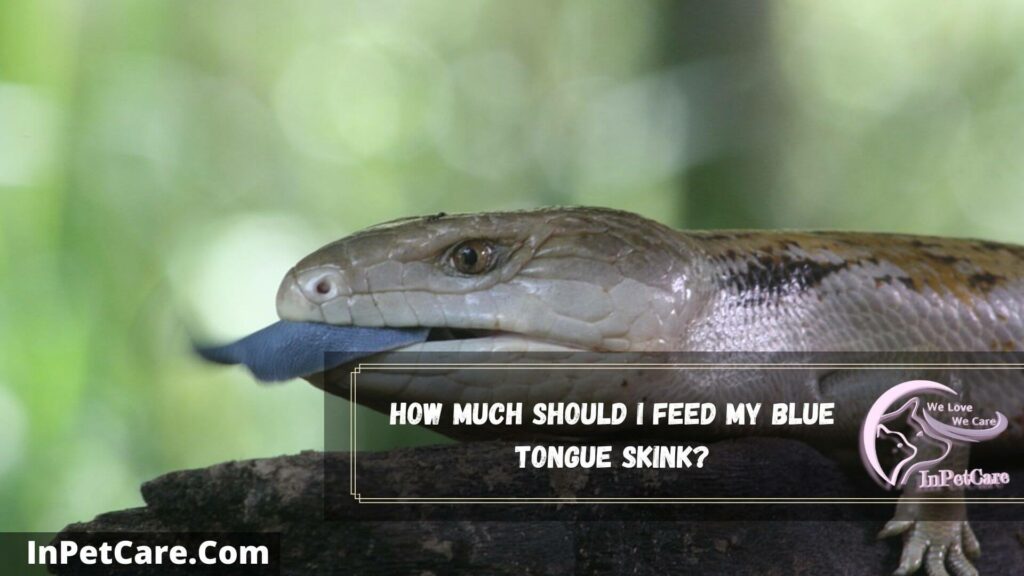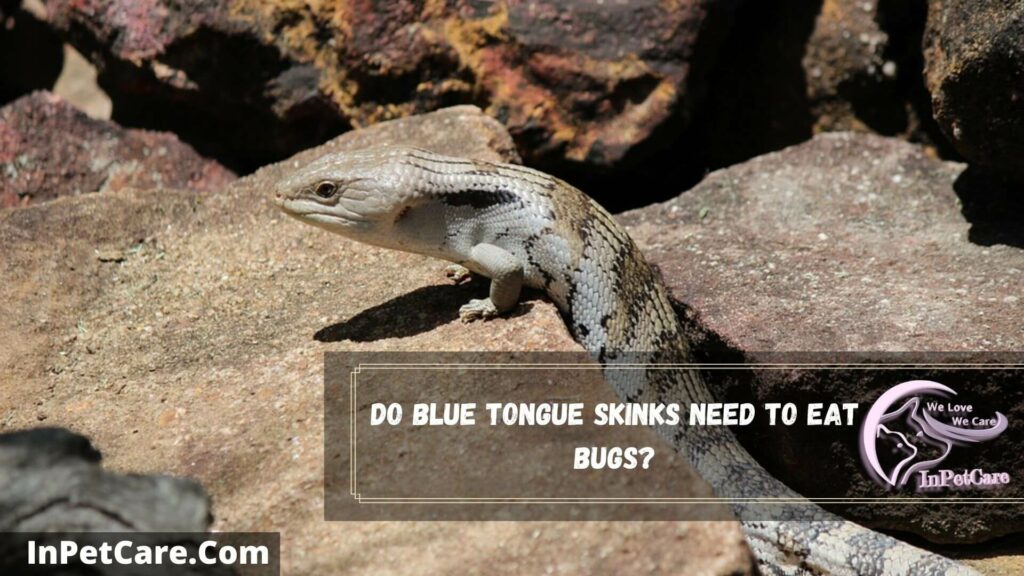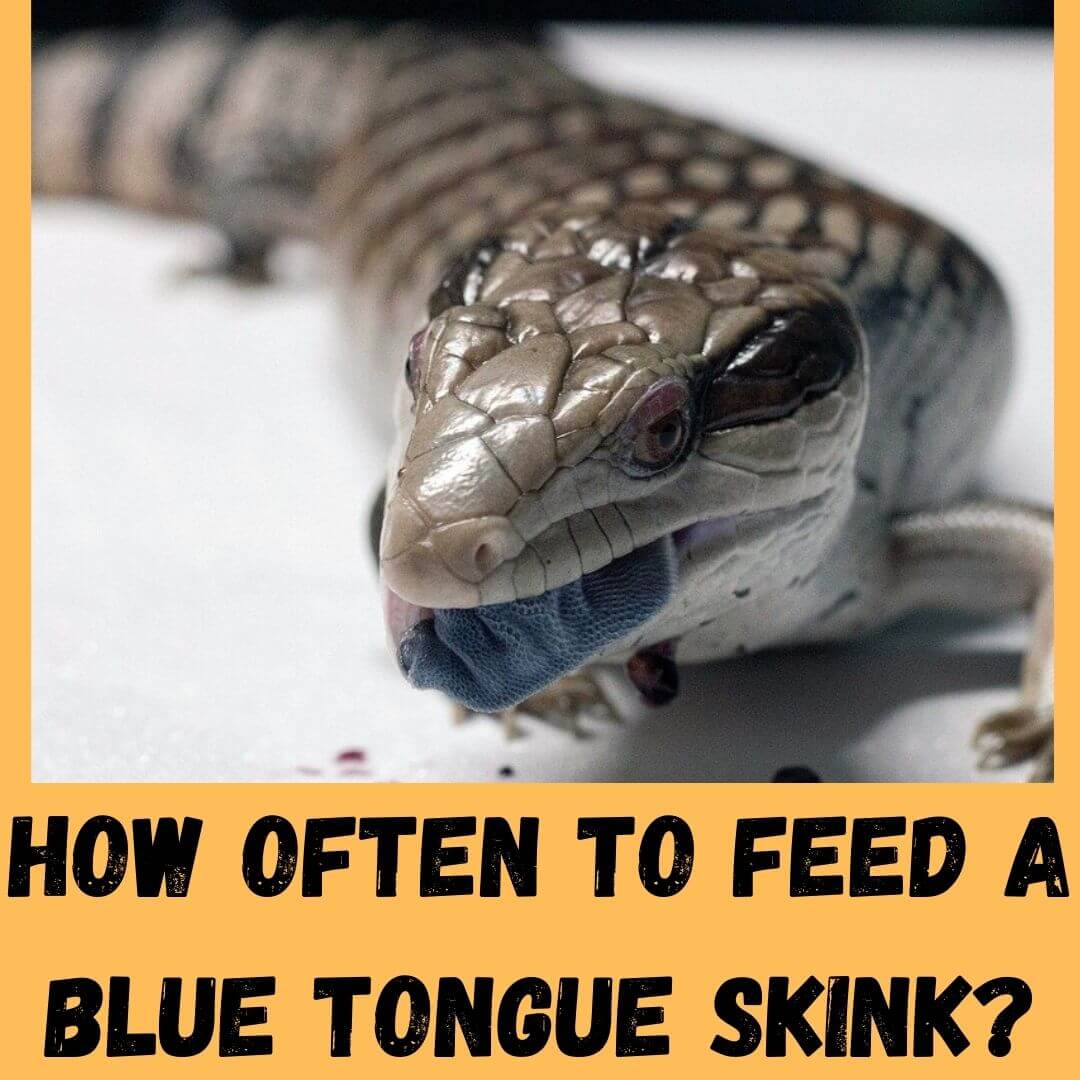If you are a first-time blue tongue skink owner and here to understand how to feed your skink correctly, then you are in the right place. Learning how often to feed a blue tongue skinks properly can feel somewhat like rocket science.
However, figuring out the suitable insect, serving and how often to feed them requires doing some research. No matter how old your blue tongue skink is, this article will answer every question regarding their feeding routine, habit, and practices.
I have shared a stunning chart below to help you remember all the essential information on their feeding habits and performance. The chart is not alone enough to learn all the things on how often to feed blue tongue skink and what to feed them as well.
We could not squeeze so much information into the chat, so be sure to keep reading. This article will cover everything on the blue tongue skink diet and its feeding habit. You will learn how often you feed a blue tongue skink, how much you should provide a blue tongue skink, what skinks eat every day, & how long they can go without food.
We will also address some frequently asked common questions in this article on their feeding habits and routine. So stay with this article and enjoy our article based hours & hours of research on blue tongue skink feed.
Post Contents
- How Often To Feed A Blue Tongue Skink?
- How Much Should I Feed My Blue Tongue Skink?
- Should I Feed My Blue Tongue Skink every day?
- Do Skinks Eat Every Day?
- How Long Can A Blue Tongue Skink Go Without Food?
- What Do I Do If My Blue Tongue Skink Isn’t Eating?
- Do Blue Tongue Skinks Need To Eat Bugs?
- How Do I Get My Blue Tongue Skink To Eat Greens?
- Final Thoughts
How Often To Feed A Blue Tongue Skink?
In warmer months, a blue tongue skink should be fed every 2 days, whereas, in colder months, a skink should be fed every 3 days. Keeping its tank in temperature constant throughout the year is essential.
If their tank temperature is not supporting their appetite, your skink may refuse to eat it completely. Being an omnivorous reptile, you should offer insects, veggies, and fruits.
Here are some valuable resources on the Blue Tongue Skinks diet for you to check. A blue tongue skink diet should consist of 50% greens and veggies, 40% protein, and 10% fruits. Moving forward, let’s learn how much to feed a blue tongue skinks.
In times when your blue tongue skink refuses to eat, it doesn’t mean the end of the world. The lighting, temperature, and humidity level itself can interfere with your skink’s dietary routine, appetite, and energy level.
How Much Should I Feed My Blue Tongue Skink?

In one sitting, you should offer 1 to 2 tablespoons of food. However, you should feed your skink as much as they want and will. Once your blue tongue skink stops eating, remove all uneaten foods because they can rot and create a foul smell.
This will give you a good idea of what quantity is ideal for your skinks in one sitting. Every individual skink’s appetite and habits vary accordingly. Every other blue tongue skink tends to have its appetite, changing conditions, different activity levels, practices, and routines. All of these decide how much a skink will eat at a time in one sitting.
Should I Feed My Blue Tongue Skink every day?
Blue tongue skink tends to Store internal fat. It would help if you fed your blue tongue skink every other day as it can cause fouling of habitats and dietary issues. Young growing skinks need to be provided daily, but adults should only be fed twice or thrice a week.
Since everyday feeding to a blue tongue lizard is not good, it is never recommended. Plus, a blue tongue skink completely stops eating during brumation as well. I would recommend you only offer 1 or 2 tbsp of food to your skinks at one sitting. Skinks will be fine if you have to visit somewhere and will not be available to provide them with food for a day or two.
Do Skinks Eat Every Day?
They are diurnal reptiles and can be fed every day, but it is not recommended. Adult blue tongue skink only needs to eat twice a week, whereas Juveniles can eat every day. Juvenile blue tongue skink needs to eat every day to support their growth. Bluetongue skinks 0-6 months old can be fed daily, whereas 6-12 old skinks every other day.
As they are reptiles and need to brumate, they can store their fat and use it in the winter season. This is why nature made skinks like this where they can go and survive without food for the upcoming 3-4 days or more in winter in starvation condition.
How Long Can A Blue Tongue Skink Go Without Food?
A blue tongue skink can survive for another 7-21 days without eating in the summer season. In the winter season, they can even go up to three months without food during brumation. Lizards bred in captivity can only go upto a few days without food.
When a lizard gives birth to young ones in captivity, young ones often get a dietary routine and habit. Adopting such young ones and keeping them without food will disturb their appetite and dietary pattern.
It can also lead them to stress, so always ask your breeder how often they used to feed skins and how long skinks can go without food. Each skink tends to have varying conditions, activity levels, and habits.
What Do I Do If My Blue Tongue Skink Isn’t Eating?
If blue skink isn’t eating, get them checked by the nearest veterinarian. The first thing you need to do is to check the root cause of why skink is not eating. You should do some things to prevent if there is something wrong causing them not to eat. Here are a few reasons why a blue tongue skink is not eating.
9 Reasons Why Blue Tongue Skinks Not Eating
- Relocating a blue tongue skink Can make them not to eat and grumpy.
- Your skink might not be feeling well and facing negative emotions, which is why they show disinterest in food.
- They are cold-blooded reptiles, and improper lighting will make your blue tongue skink not to eat.
- Skink is suffering from impaction or constipation, causing disinterest in foods.
- Itching and allergies can make a skink feel discomfort, making the food become a far lower priority.
- Infections like mouth rot can be terrifying for your skinks. And disease caused in the blue tongue skink mouth can afflict your dragon not to eat.
- If your blue tongue lizard is suffering from some illness, you need to schedule a trip to your nearest vet. A blue tongue skink suffering from the disease will also stop eating in the worst-case scenario.
- The unstable temperature in the tank will also make them not want to eat and decline in their appetite.
- Blue Tongue Skinks preparing for brumation may also stop eating.
Do Blue Tongue Skinks Need To Eat Bugs?

Yes, Skinks diet should consist of 40% protein in which the primary source should be insects & bugs. Blue tongue skinks can eat many bugs, but gut loading the feeder insects is essential for their diet.
Skink enjoys bugs like a grasshopper, cricket, dubia roaches, earthworms, and many more. Avoid feeding your skink bugs found outside. Outdoor bugs tend to be full of parasites which can make your skink very ill shortly. Get them the commercial feeders.
How Do I Get My Blue Tongue Skink To Eat Greens?
Being omnivorous, blue tongue skinks can eat greens and always love to feed on plant matters. If your blue tongue skink is not eating greens, consider switching their diet or its variety.
Just like us, skinks also enjoy the change in their diet once in a while. Sometimes, feeding the same variety of food every day can overwhelm your skinks. Here is a good guide on what vegetables can blue tongue skink eat. It has many vegetables mentioned to choose from and feed to your blue tongue skink.
Final Thoughts
Wrapping Up: Adult blue tongue skinks should be fed twice or thrice a week only, and their diet should consist of 50% veggies and greens, 10% fruits, and 40% insect-animal based protein. On the other hand, baby blue tongue skinks should be fed daily for their growth.
A blue tongue skink can also stop eating for many reasons. In the initial stage, baby skinks tend to grow very fast, and to support their growth, nutrients are required. It would help if you consider feeding more protein to your blue tongue skink.
Being a responsible owner, you must know all the reasons and act accordingly. If your skinks suddenly stop eating, check the tank if something is threatening them. The interference in their temperature gradient can alone make your skink not eat.
You might have noticed blue tongue lizards not being much active in the dark. I hope I managed to give you all the information needed on how much & how often to feed a blue tongue skink.
If you find this article helpful, consider sharing it because it will encourage us to write more. Plus, this article will also help other fellows with their skinks. I hope you will also find our other articles helpful too. Here is a comprehensive guide on how to care for blue tongue skinks. I hope I will get another chance to help you out with your pet through another article; till then, take care, and goodbye.

94% of pet owners say their animal pal makes them smile more than once a day. In 2007, I realized that I was made for saving Animals. My father is a Vet, and I think every pet deserves one. I started this blog, “InPetCare”, in 2019 with my father to enlighten a wider audience.
